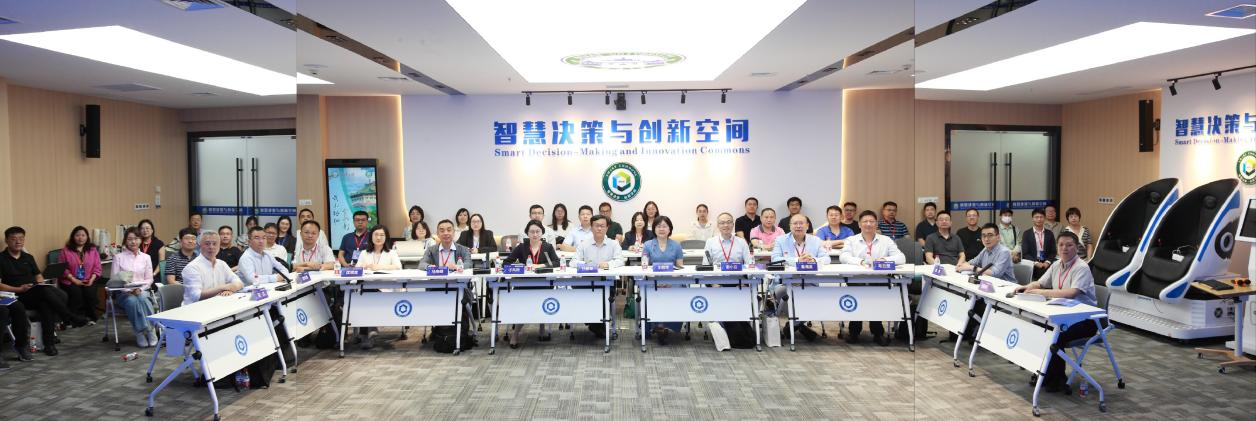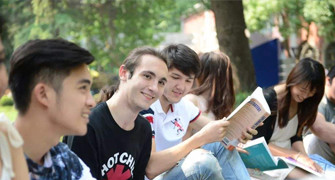From May 14 to 15, Wuhan University hosted the second conference of the University Philosophy and Social Sciences Laboratory Alliance. Attendees included Academician Zhang Pingwen, President of Wuhan University; Huang Xuelong, Director of the Hubei Provincial Academy of Social Sciences; Jiang Guohua, Deputy Party Secretary of Peking University; and Li Li, Associate Vice President of the University of Exeter, UK, who delivered speeches. Nobel Prize-winning economist Thomas Sargent, Professor at New York University; Academician Yang Shanlin of Hefei University of Technology; Professor Fu Zitang of Southwest University of Political Science and Law; Ma Feicheng, Senior Professor of Humanities and Social Sciences at Wuhan University; and over 200 experts, scholars, and research management professionals from 30 Ministry of Education philosophy and social sciences laboratories attended the conference. The event was chaired by Lu Wei, Vice President of Wuhan University.

On the afternoon of the 14th, participating scholars engaged in dialogue and exchange across parallel forums on topics including "Digital Humanities and the Inheritance of Human Civilization," "Digital Intelligence Innovation and High-Quality Development," "Digital Intelligence in Public Governance and Sustainable Development," "Digital Intelligence Empowerment and Comprehensive Rule of Law," and "Digital Intelligence-Driven Future Development of the Humanities."
Among these, the School of Economics and Management hosted the parallel forum on "Digital Intelligence Innovation and High-Quality Development," organized by Professor Huang Minxue, Vice Dean of the School of Economics and Management and Vice Director of the Big Data Research Institute. The first half of the forum was moderated by Professor Cai Fengyan, Deputy Director of the Digital Management Decision Laboratory at Shanghai Jiao Tong University, while the second half was led by Professor Wu Jiang, Vice Dean of the School of Information Management at Wuhan University.

Professor Qin Haiying, Deputy Director of the Economic Behavior and Policy Simulation Laboratory at Nankai University, systematically presented the laboratory’s progress and landmark achievements, emphasizing six research directions, including experimental and behavioral economics and macroeconomic policy. Professor Sun Jianjun, Director of the Data Intelligence and Cross-Innovation Laboratory at Nanjing University, elaborated on how digital intelligence integration drives innovation in humanities laboratories, highlighting infrastructure, digital intelligence platforms, and think tank services. Professor Ma Shoufeng, Executive Director of the Complex Management Systems Laboratory at Tianjin University, focused on building high-quality philosophy and social sciences laboratories, proposing breakthroughs in research paradigms, deep interdisciplinary integration, and the demonstration of social value, along with cross-disciplinary development paths and recent achievements. Professor Wei Lijian, Academic Director of the Big Data Management Behavior and Decision Laboratory at Sun Yat-sen University, outlined how digital intelligence technology platforms promote innovation in management, showcasing applications in finance, tourism, and healthcare through industry-academia data integration, privacy computing, and supercomputing resources. Professor Shen Siyan, Executive Dean of the Global Value Chain Research Institute at the University of International Business and Economics, highlighted the laboratory’s interdisciplinary and international collaboration features, including China’s first global value chain major, and presented its self-developed global value chain database and industry reports.
Following the first half of the forum, Professor Xie Xiaoyun, Director of the Digital Intelligence Innovation and Management Laboratory at Zhejiang University, provided expert commentary. He summarized five common themes from the presentations: (1) interdisciplinary research, driven by problem-solving rather than confined to single disciplines; (2) demand-driven research, such as serving macroeconomic policy consulting; (3) integration of education and research, emphasizing talent cultivation; (4) open sharing, including technology and data platforms; and (5) value orientation, balancing social and technical systems in humanities labs, distinct from the instrumental rationality of science labs.

Professor Chen Tao, Director of the Research Department at Southwestern University of Finance and Economics, discussed the Financial Security and Behavioral Big Data Laboratory’s disciplinary layout and major project-driven achievements, raising three management topics for academic discussion: interdisciplinary team integration, platform attractiveness, and research institution positioning. Professor Zhou Guanghui, Deputy Director of the Digital Economy Monitoring, Forecasting, and Policy Simulation Laboratory at the University of Chinese Academy of Sciences, shared insights on building new humanities laboratories, showcasing academic achievements and activities supporting economics and management disciplines. Professor Huang Minxue, Director of the Smart Decision and Innovation Space Laboratory at Wuhan University, presented on the laboratory’s background, positioning, layout, and case studies, emphasizing its role in supporting social sciences and STEM applications through digital intelligence-driven upgrades and a five-pronged approach.
After the second half, Professor Sun Jianjun, Dean of the Big Data Research Institute for Humanities and Social Sciences at Nanjing University, highlighted four key themes: (1) alignment with national strategic needs; (2) interdisciplinary integration; (3) prominent data and AI elements; and (4) laboratory openness, calling for further discussion on building an autonomous knowledge system for humanities and social sciences.
During the discussion session, representatives from China University of Mining and Technology and Huazhong Agricultural University introduced their laboratories on national energy security system management and digital intelligence for food security governance, respectively.
In closing, Wang Liping, Party Secretary of the School of Economics and Management at Wuhan University, expressed gratitude to the attendees, praised the high-quality presentations, and called for continued collaboration to advance philosophy and social sciences laboratories in the digital intelligence era.
Reporters: Ding Tianzhuo, Wan Jun, Tang Jialu; Reviewer: Huang Minxue
 Faculty and Staff
Faculty and Staff Academics
Academics International Exchange
International Exchange







